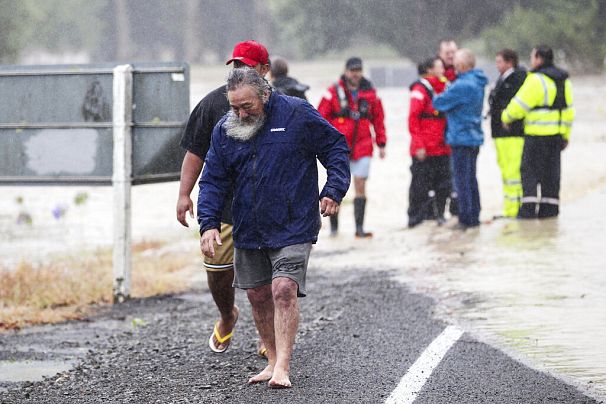Cyclone Gabrielle has left thousands of homes flooded and without power on New Zealand's North Island, just weeks after flooding killed four people.
The New Zealand Government declared a national state of emergency on Tuesday, after Cyclone Gabrielle caused widespread flooding, landslides and ocean swells in the country's north.
Thousands of households have been impacted by the floods and more than 225,000 people have been left without power.
A state of emergency has so far been declared in seven regions: Northland, Auckland, Tairāwhiti, Bay of Plenty, Waikato, and Hawke’s Bay CDEM Group areas, and the Tararua District.
The rising water forced evacuations and reportedly left people stranded on roof tops and roads, but so far nobody has been reported dead.
The country's new Prime Minister Chris Hipkins said Cyclone Gabrielle is "one of the most significant weather events New Zealand has seen this century.
He added: "The severity and the breadth of the damage that we are seeing has not been experienced in a generation. This morning we declared a national emergency for only the third time in our history."
The country's official weather forecaster, Met Service, said the severe weather should ease before dawn on Wednesday, as Cyclone Gabrielle moves away from New Zealand.
New Zealand Minister for Emergency Management, Kieran McAnulty, wrote on Twitter that the declaration "gives us the ability to coordination [sic] further resources for affected regions. I want to emphasise that the Government has already been surging support and resources to the regions for some days."
The northern island is the most populated area of the country, and has not yet recovered from the heavy floods it suffered last January, which left several people dead.












